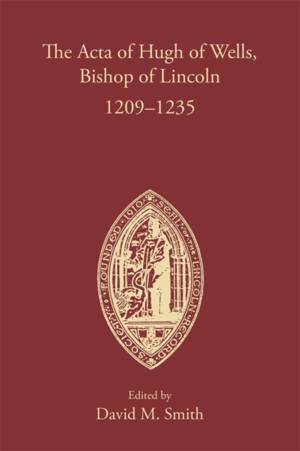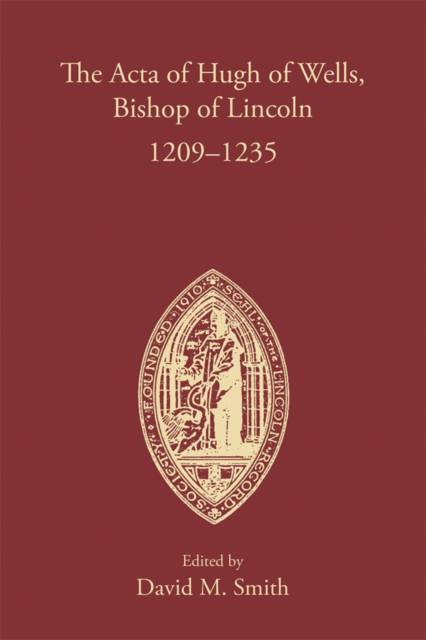
- Afhalen na 1 uur in een winkel met voorraad
- Gratis thuislevering in België vanaf € 30
- Ruim aanbod met 7 miljoen producten
- Afhalen na 1 uur in een winkel met voorraad
- Gratis thuislevering in België vanaf € 30
- Ruim aanbod met 7 miljoen producten
Zoeken
The ACTA of Hugh of Wells, Bishop of Lincoln 1209-1235
€ 64,45
+ 128 punten
Omschrijving
The diocese of Lincoln was the largest in medieval England, extending over nine counties, and the early thirteenth century saw considerable development in episcopal government and evident concern over Church reform in the aftermath of the Fourth Lateran Council of 1215. Hugh of Wells brought to his diocese his experience as a royal official in the chancery of King John, and his tenure of the see was marked by transition and innovation, with particular emphasis on pastoral responsibilities at local level. This edition of his collected acta - over 450 - assembled from cathedral, monastic, and governmental archives, supplements the surviving summary enrolments and reveals Hughas an active and innovative diocesan at an important point in the history of the English Church.DAVID M. SMITH is Director of the Borthwick Institute of Historical Research, University of York.
Specificaties
Betrokkenen
- Uitgeverij:
Inhoud
- Aantal bladzijden:
- 310
- Taal:
- Engels
- Reeks:
- Reeksnummer:
- nr. 88
Eigenschappen
- Productcode (EAN):
- 9780901503657
- Verschijningsdatum:
- 1/06/2000
- Uitvoering:
- Hardcover
- Formaat:
- Genaaid
- Afmetingen:
- 152 mm x 236 mm
- Gewicht:
- 725 g

Alleen bij Standaard Boekhandel
+ 128 punten op je klantenkaart van Standaard Boekhandel
Beoordelingen
We publiceren alleen reviews die voldoen aan de voorwaarden voor reviews. Bekijk onze voorwaarden voor reviews.






